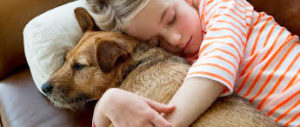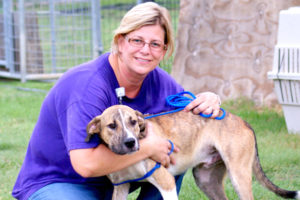By Dr. Beth Leermakers
Coronavirus-19 (COVID 19) is a threat to dogs and cats — due to people’s panic, not the disease itself. In the DFW animal rescue community, there are anecdotal reports of people surrendering their pets to shelters, or taking them to their vet requesting euthanasia, out of concern about pets spreading coronavirus. This fear is unfounded. According to the American Veterinary Medical Association (AVMA), “Infectious disease experts and multiple international and domestic human and animal health organizations agree there is no evidence at this point to indicate that pets become ill with COVID-19 or that they spread it to other animals, including people.”

In late February, the pet dog of an infected patient in Hong Kong tested “weakly positive” for coronavirus. The dog was removed from the household (the possible source of contamination) to determine whether the dog was in fact infected or whether its mouth and nose were being contaminated with COVID-19 virus from the household. The “weak positive” result from a nasal sample taken five days after the dog was removed from the home suggests that the dog has a low-level of infection that was probably a case of human-to-animal transmission. However, there is still no evidence at this time that mammalian pet animals including dogs and cats can be a source of infection to other animals or humans. According to the Hong Kong SPCA, ‘being infected’ does not mean being infectious and capable of spreading the Covid-19 virus.
Cats and dogs do get coronaviruses — but not the same viruses associated with this outbreak. Coronaviruses in cats and dogs don’t cause respiratory symptoms like COVID-19 causes in people.
What does all this mean?
If you are not sick with coronavirus:
You can interact with your pets as you normally would, including walking, feeding and playing with them. Because pets can transmit other diseases, you should practice good hygiene related to your pets. This includes washing your hands before and after touching your pet; keeping your pet well-groomed; and regularly cleaning your pet’s food and water bowls, bedding and toys.
The CDC website states: “To date, CDC has not received any reports of pets or other animals becoming sick with COVID-19. At this time, there is no evidence that companion animals including pets can spread COVID-19. However, since animals can spread other diseases to people, it’s always a good idea to wash your hands after being around animals.”

If you are sick with COVID-19:
The CDC and AVMA recommend that people who are ill with coronavirus exercise caution and limit contact with animals until more information is known about the virus. This does NOT mean getting rid of your cat or dog if you have COVID-19. If possible, have another member of your household walk, feed and play with your pet.
If you have a service animal or don’t have anyone else to care for your pet, take these precautions when interacting with your pet:
- Wear a facemask.
- Don’t kiss (or let your pet kiss or lick you), hug, snuggle with or share food with your pet.
- Wash your hands before and after any contact with them.
Animals can be a great comfort during stressful times. Instead of getting rid of them, people should be embracing their pets — as long as they wash their hands before and afterward.
